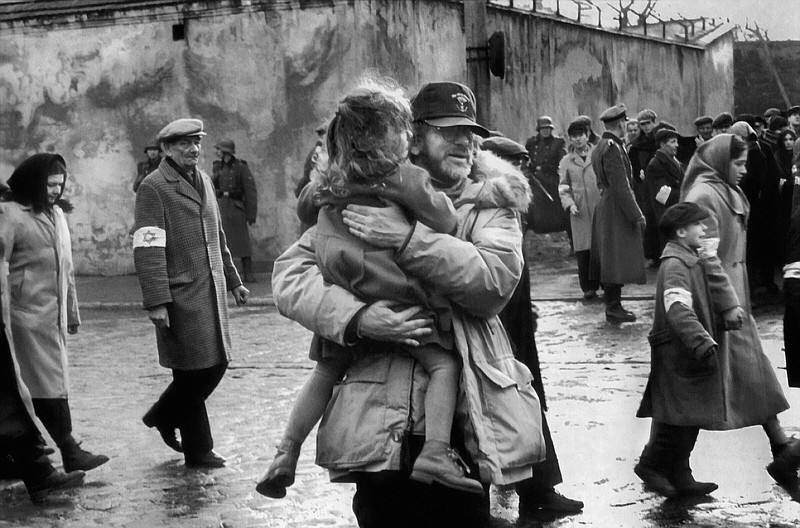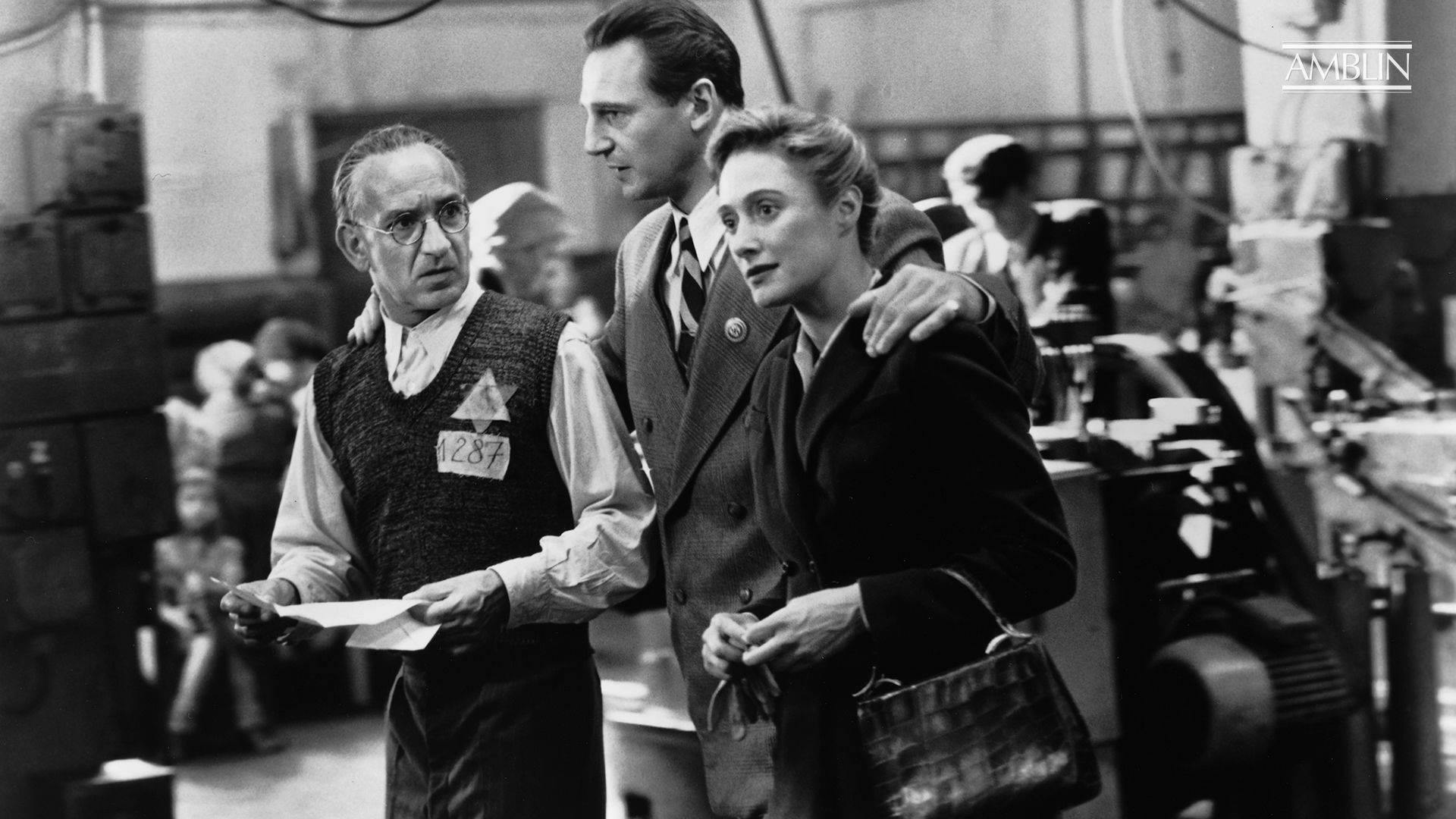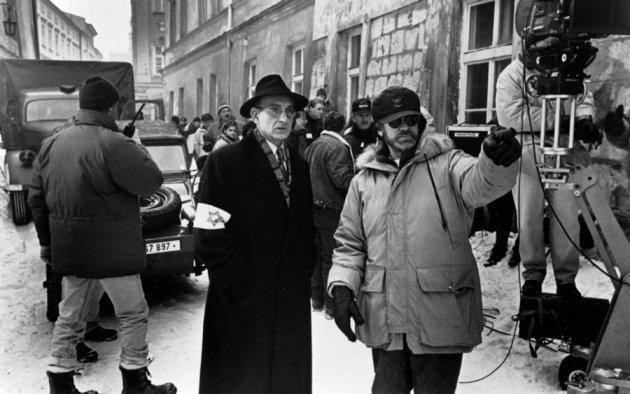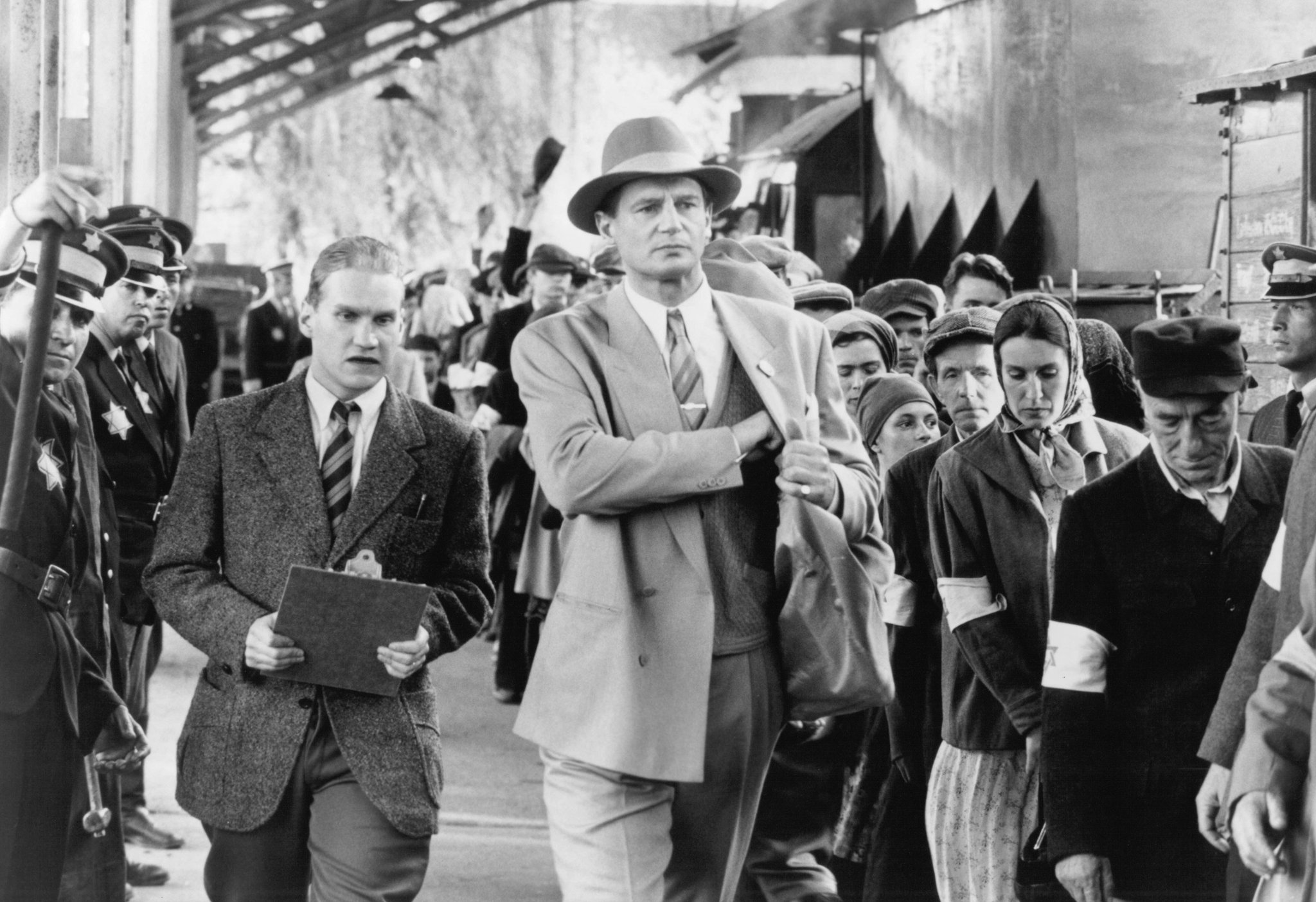Schindler’s List (1993)

Schindler’s List (1993) is a historical drama directed by Steven Spielberg, based on the true story of Oskar Schindler, a German businessman who saved the lives of more than 1,100 Jewish people during the Holocaust. Starring Liam Neeson as Schindler, Ben Kingsley as his Jewish accountant Itzhak Stern, and Ralph Fiennes as the brutal Nazi officer Amon Goeth, the film offers a deeply impactful portrayal of humanity, sacrifice, and moral transformation amid one of history’s darkest periods.
The story begins in 1939, at the start of World War II, when Oskar Schindler arrives in Kraków, Poland, seeking to profit from the German occupation. Schindler, a member of the Nazi Party, is initially depicted as a self-serving businessman with little concern for anyone but himself. He capitalizes on wartime opportunities to open a factory, employing Jewish labor for the sake of cheap costs. Through his connections with Nazi officials and with the assistance of Itzhak Stern, he secures workers from the Jewish ghetto. At first, these Jewish laborers are merely a means to an end, allowing him to generate profit.
However, as the war progresses, Schindler’s perspective begins to shift. He witnesses the horrifying treatment of Jewish people, particularly during the liquidation of the Kraków ghetto, where Jewish families are violently torn from their homes, and many are brutally murdered. One haunting moment stands out when Schindler sees a young girl in a red coat walking alone through the chaos, a rare color in the film’s otherwise black-and-white palette. This moment marks a profound shift in Schindler’s character, symbolizing his awakening to the brutality around him and the innocence of the victims.
As Schindler grows increasingly disturbed by the atrocities he witnesses, he decides to use his factory as a refuge for as many Jews as possible. His accountant, Itzhak Stern, becomes an essential ally in this effort, helping Schindler compile a list of Jewish workers who would be “essential” to his operations, thereby saving them from deportation to concentration camps. This list—Schindler’s list—becomes a symbol of hope and survival for the workers, representing their chance at life in a world where so many others are perishing.
A major antagonist in the film is Amon Goeth, the sadistic Nazi officer in charge of the Płaszów labor camp. Played by Ralph Fiennes, Goeth embodies the cruelty of the Nazi regime, committing unspeakable acts without remorse. His character serves as a chilling contrast to Schindler, who, despite his flaws, ultimately chooses to act on his conscience. The interactions between Schindler and Goeth reveal the moral complexities of the time; while Goeth sees the Jewish people as subhuman, Schindler begins to see them as individuals worthy of dignity and protection. This ideological conflict adds depth to the story, illustrating the range of human behavior in response to power and oppression.
The relationship between Schindler and Stern is also significant. Initially, Stern is wary of Schindler, perceiving him as just another opportunist exploiting Jewish labor. However, as Schindler’s intentions shift, a mutual respect and partnership grow between them. Stern, a man of integrity and wisdom, influences Schindler by appealing to his conscience, helping him recognize his potential to make a difference. Their bond highlights the importance of solidarity and moral courage in the face of overwhelming cruelty.
As the war nears its end, Schindler’s factory becomes a last sanctuary for his workers. He exhausts his fortune to bribe Nazi officials and ensure that as many lives as possible are saved. In a heart-wrenching moment, Schindler laments that he could have done more, wishing he had sold his car or his gold pin to save even one more life. This scene underscores the film’s message of redemption and the profound impact of individual acts of compassion, even in the face of immense evil.
The use of black-and-white cinematography by Janusz Kamiński adds a timeless and haunting quality to Schindler’s List, immersing the audience in the bleak reality of the Holocaust. The red coat worn by the young girl remains one of the only instances of color, symbolizing innocence amidst horror and serving as a visual anchor for Schindler’s moral transformation. The cinematography, combined with John Williams’ moving score, creates a powerful atmosphere that captures the film’s emotional weight and historical importance.
The film’s impact lies not only in its historical accuracy but in its ability to humanize the tragedy. Spielberg’s direction brings to life the individual stories of suffering and survival, reminding viewers of the resilience and dignity of the human spirit. Schindler’s List does not shy away from depicting the horrors of the Holocaust, yet it also shines a light on the potential for goodness and moral courage.

Since its release, Schindler’s List has been praised as one of the greatest films ever made, receiving seven Academy Awards, including Best Picture and Best Director. Its legacy is not only in cinema but in education, as it has become an essential tool for teaching about the Holocaust and the importance of empathy, compassion, and the impact one individual can have. Oskar Schindler’s transformation from a profit-driven businessman to a savior of lives is a testament to the power of redemption and the human capacity for change, even in the darkest of times.
Schindler’s List stands as a profound reminder of the atrocities of the Holocaust and the importance of remembering history to prevent future generations from repeating such horrors. It is a film that leaves a lasting impression, encouraging viewers to consider the weight of their own choices and the moral courage required to stand up against injustice. Through Schindler’s story, Spielberg not only honors the lives that were saved but also pays tribute to those who were lost, creating a timeless work of art that continues to resonate deeply with audiences around the world.











